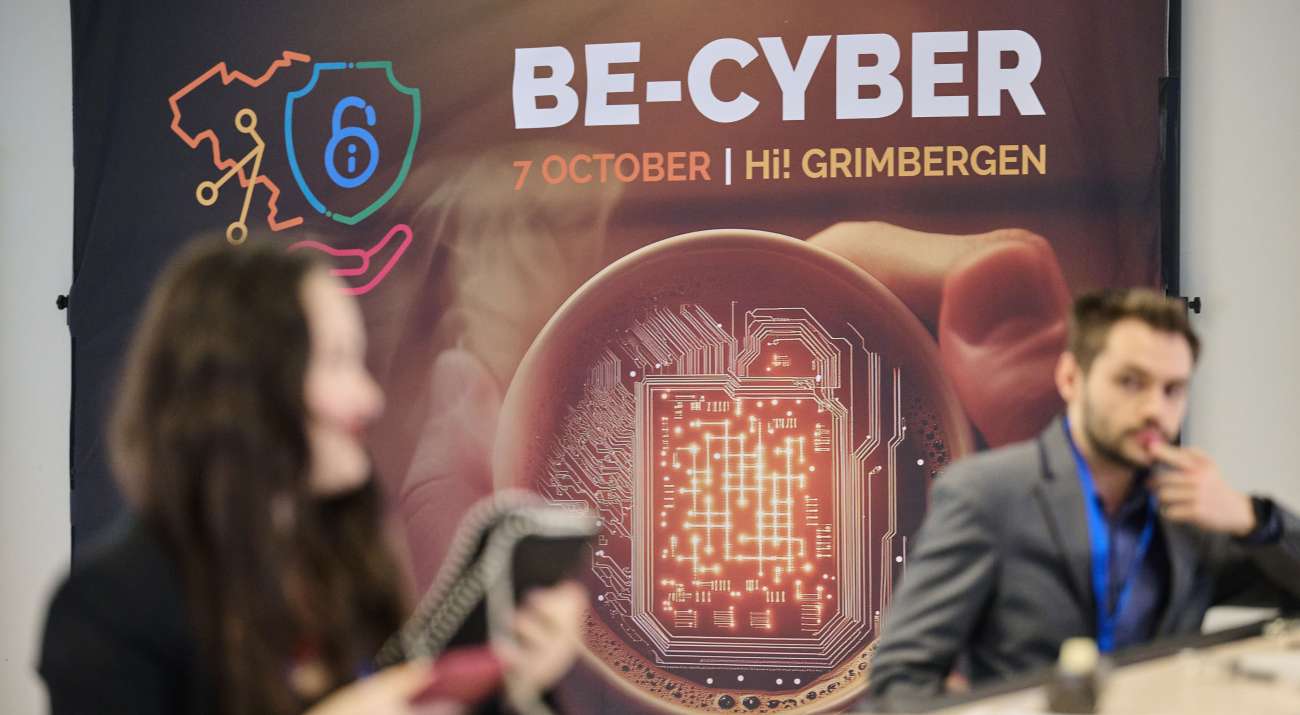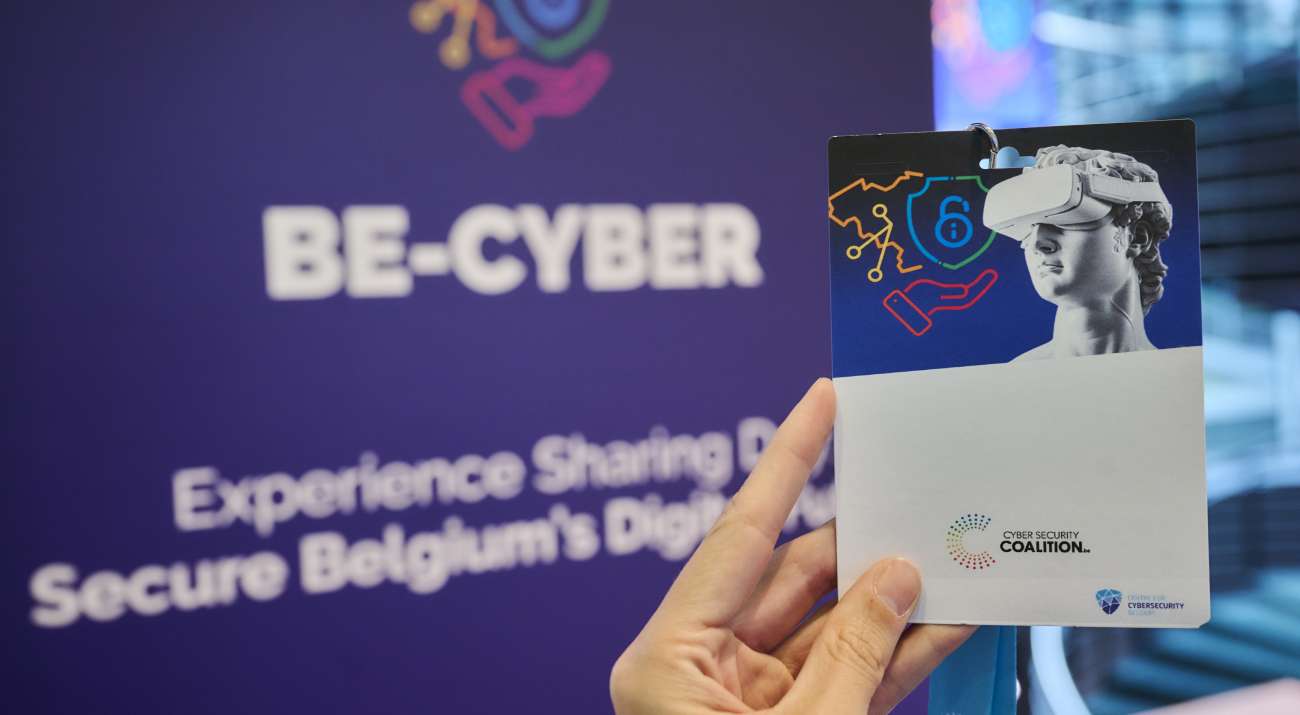Cyber Skills Evolution in the Modern Workforce
In this webcast our esteemed panellists embark on a journey to explore the dynamic landscape of cybersecurity skills within the contemporary workplace. They delve into the evolving nature of cyber skills, examining the challenges and opportunities facing both individuals and organizations in navigating this rapidly changing field. In the second part of the webcast, Mrs. Ulrika Dellrud explains how to build bridges between privacy and security in a digital trust world.Mastering effective governance in organizations: roadmap to success
For five years, Dr. Koen De Maere delved deep into the challenges plaguing organizations’ digital strategies and governance activities as part of his research project at the University of Antwerp and the Antwerp Management School. With insights from 100+ leaders, he brings invaluable wisdom to the table. In this webcast he unveils the common pitfalls hindering organizational success and shares actionable practices to overcome them.CyberFundamentals Framework
Mr. Johan Klykens presented CCB’s CyberFundamentals, a framework of guidelines to ensure and continuously improve cyber security both within the public and private sectors. The framework describes five core functions: identify, protect, detect, respond and recover. These functions enable communication around cybersecurity among both technical professionals and stakeholders so that cyber-related risks can be incorporated into the organisation’s overall risk management strategy. The IMPORTANT and ESSENTIAL levels are already in line with the provisions in the NIS2 directive.Guinan Track: Personal Data Empowerment
A fresh vision for personal data empowerment, built around consumer attitudes and values, is required: one that sees the value of data shared more evenly amongst both the citizens who generate data and the organizations that use it; one that balances safeguards with the ability to innovate and one that contributes towards a more stable personal data ecosystem that better serves the citizens in the 21st century. The Guinan Track isn’t just for privacy experts; it’s for EVERYONE who wants control over their personal data. Guest speakers:- Prof. Bart Jacobs, Radboud Nijmegen University: “Autonomy and Duty of Care”
- Mr. Max Schrems, Chair NOYB.EU: “Empowerment via enforcement?”
- Prof. Bart Jacobs, Radboud Nijmegen University
- Mr. Max Schrems, Chair NOYB.EU
- Mr. Laurens Behaeghe, CISO athumi
- Mrs. Ulrika Dellrud, Chief Privacy & Data Ethics Officer Smarter Contracts
- Mrs. Cornelia Kutterer, Adjunct Senior Research Fellow University of Grenoble Member of the Advisory Board IAPP AI Governance Centre
Worf Track: Cyber Security Fuelled by Frontier Technologies
Frontier technologies are paving the way for the future, but what about their impact on cybersecurity? What unique challenges do frontier technologies pose from a cybersecurity perspective? How can the cybersecurity industry harness these technologies to enhance security and resilience? This panel discussion is your gateway to understanding the future of cybersecurity. Guest Speakers: Jean-Luc Trullemans, Head of European Space Security & Education Centre (ESEC) European Space Agency (ESA): “Without Security in Space there will be no Security on Earth.” Nigel Smart, Professor at COSIC-KU Leuven: “Can a Public Blockchain be Truly Private? Cryptographic Innovations in Web3″ Panel discussion: “The Cybersecurity Challenges and Opportunities of Frontier Technologies” Moderator: Ken Ducatel, Director (retired) European Commission – DG DIGIT Panel members:- Liliana Musetan, Head of Unit at Council of the European Union
- Nikolaos Saklampanakis, technical Lead Fujitsu
- Nicolas Point, Head of Network Engineering Department at Multitel
- Evarest Schoofs, Co-Founder and Managing Partner OneBonsai
- Nigel Smart, Professor at COSIC-KU Leuven
Spock Track: Securing the Digital Frontier
As we navigate the digital frontier, new cyber risks emerge, challenging the insurance industry’s policies and practices. How are insurers adapting their policies to address these evolving threats? Which strategies do they adopt to meet the evolving needs of their clients? This Spock panel discussion is a must-view for anyone in the cybersecurity and insurance sectors. Guest speakers:- Saâd Kadhi, Head of CERT.eu European Commission: “Tales of the Future Past” (not recorded)
- Filip De Cock, Head of CERT KBC Group: “Understanding Trends to Mitigate Cyber Risks” (not recorded)
- Elene Bogaert, Underwriter – Cyber & Technology Beazley
- Anne-Sophie Coppens, FINPRO Senior Client advisor & Cyber Practice Leader BeLux Marsh
- Stéfanie Deley, Cyber Expert Advisor & Broker Financial Lines AON Belgium
- Jeremy D’hondt, Sales and Development PI & Cyber Risks Hiscox
- Tom Van Britsom, Manager Business Development & Innovation, Risk & Broker Services Vanbreda Risk & Benefits
Picard Track: OT/ICS: The Next Security Frontier
In a world teeming with Internet-connected industrial marvels, the fusion of Operational Technology (OT) and Information Technology (IT) has opened portals to innovation – but also to unprecedented risks. The PICARD track unearths this crucial frontier where the stakes are high, the challenges are real, and the future is waiting to be fortified. Guest Speakers:- Mr. Dominic Storey, Principal OT Architect Tenable EMEA: “Demystifying Active Query in OT Networks”
- Mr. Kai Thomson, Certified SANS Instructor: “The Current Threat Landscape of OT/ICS and what to do about it“
- Mr. François Cappellen, Head of Industrial SOC TotalEnergies
- Mr. Bart Claeys, Senior Solution Architecte-BO Enterprises
- Ms. Soultana Ellinidou, Cybersecurity Manager Thales Belgium
- Mr. Geoffroy Moens, Global Cybersecurity Architect Schneider Electric
- Mr. Dominic Storey, Principal OT Architect Tenable EMEA
- Prof. Bart Jacobs, Radboud Nijmegen University: “Autonomy and Duty of Care”
- Mr. Max Schrems, Chair NOYB.EU: “Empowerment via enforcement?”
- Prof. Bart Jacobs, Radboud Nijmegen University
- Mr. Max Schrems, Chair NOYB.EU
- Mr. Laurens Behaeghe, CISO athumi
- Mrs. Ulrika Dellrud, Chief Privacy & Data Ethics Officer Smarter Contracts
- Mrs. Cornelia Kutterer, Adjunct Senior Research Fellow University of Grenoble Member of the Advisory Board IAPP AI Governance Centre
- Liliana Musetan, Head of Unit at Council of the European Union
- Nikolaos Saklampanakis, technical Lead Fujitsu
- Nicolas Point, Head of Network Engineering Department at Multitel
- Evarest Schoofs, Co-Founder and Managing Partner OneBonsai
- Nigel Smart, Professor at COSIC-KU Leuven
- Saâd Kadhi, Head of CERT.eu European Commission: “Tales of the Future Past” (not recorded)
- Filip De Cock, Head of CERT KBC Group: “Understanding Trends to Mitigate Cyber Risks” (not recorded)
- Elene Bogaert, Underwriter – Cyber & Technology Beazley
- Anne-Sophie Coppens, FINPRO Senior Client advisor & Cyber Practice Leader BeLux Marsh
- Stéfanie Deley, Cyber Expert Advisor & Broker Financial Lines AON Belgium
- Jeremy D’hondt, Sales and Development PI & Cyber Risks Hiscox
- Tom Van Britsom, Manager Business Development & Innovation, Risk & Broker Services Vanbreda Risk & Benefits
Achieving cyber stability: successes and challenges
All stakeholders in the digital domain – governments, the private sector and academia have been working hard to achieve a more secure and trusted cyberspace over the past decades. Heli Tiirmaa-Klaar analyzes the lessons learned that have contributed to the successes, and also describes the remaining challenges, where all stakeholders have a role to play to build a more resilient cyber future.
Embrace Equity
There is no one “right” path into cybersecurity but many paths. The two panel discussions organized by Women4Cyber Belgium bring you real-life stories of women with very different backgrounds who successfully ventured into the cybersecurity industry. It is time to scatter the myths and encourage women to take the first step and acquire cybersecurity skills.Cybersecurity needs more women. In order to build a strong culture of cyber resilience, employers should prioritize attracting, empowering and retaining talented female cybersecurity professionals. Women in or aspiring toward cybersecurity roles represent an untapped reservoir of potential when it comes to the widening cybersecurity workforce gap. Fortunately, there are plenty of incredible women blazing the trail for a more diverse and inclusive industry in the world of security. On International Women's Day 2023, Women4Cyber Belgium showcased two role models in cybersecurity: Liga Raita Rozentale and Nathalie Ketelslegers.
All stakeholders in the digital domain - governments, the private sector and academia have been working hard to achieve a more secure and trusted cyberspace over the past decades. Heli Tiirmaa-Klaar analyzes the lessons learned that have contributed to the successes, and also describes the remaining challenges, where all stakeholders have a role to play to build a more resilient cyber future.
There is no one “right” path into cybersecurity but many paths. The two panel discussions organized by Women4Cyber Belgium bring you real-life stories of women with very different backgrounds who successfully ventured into the cybersecurity industry. It is time to scatter the myths and encourage women to take the first step and acquire cybersecurity skills.

